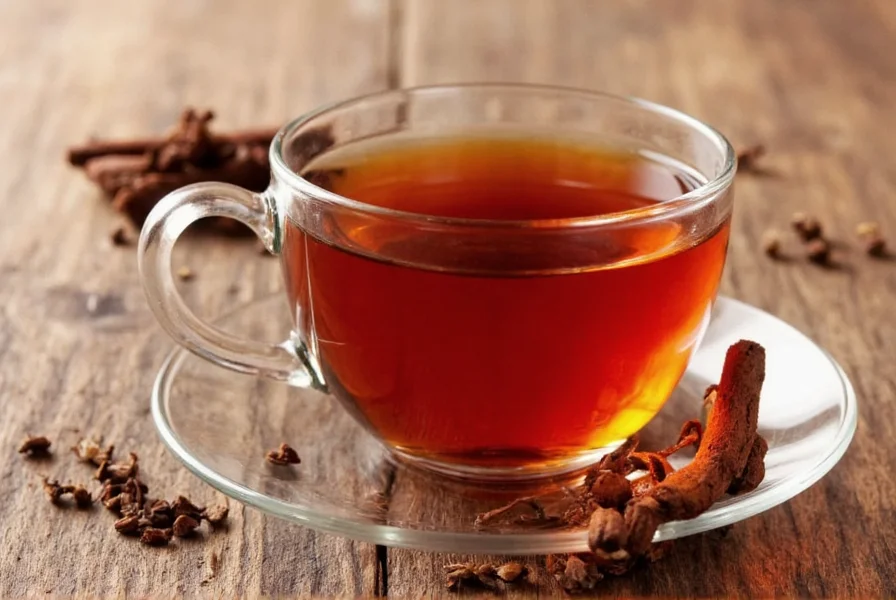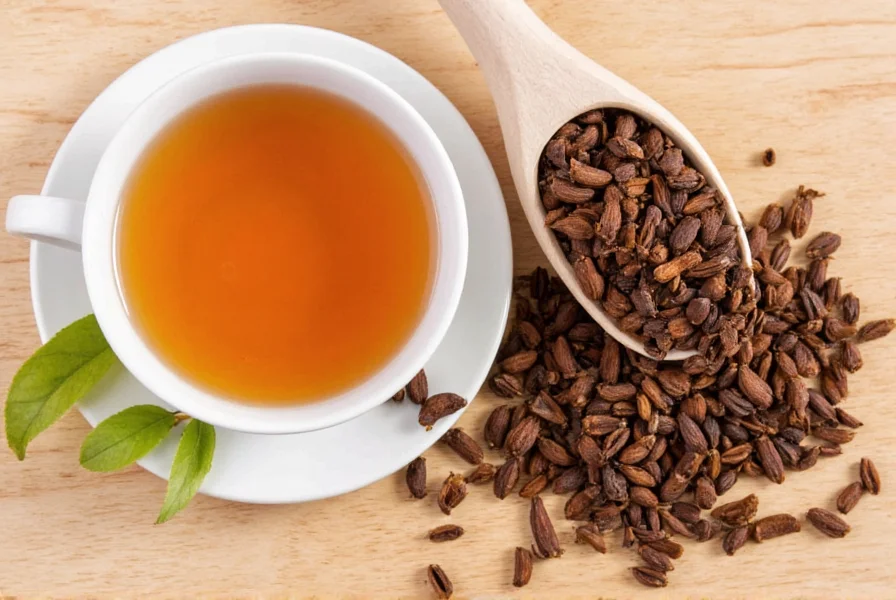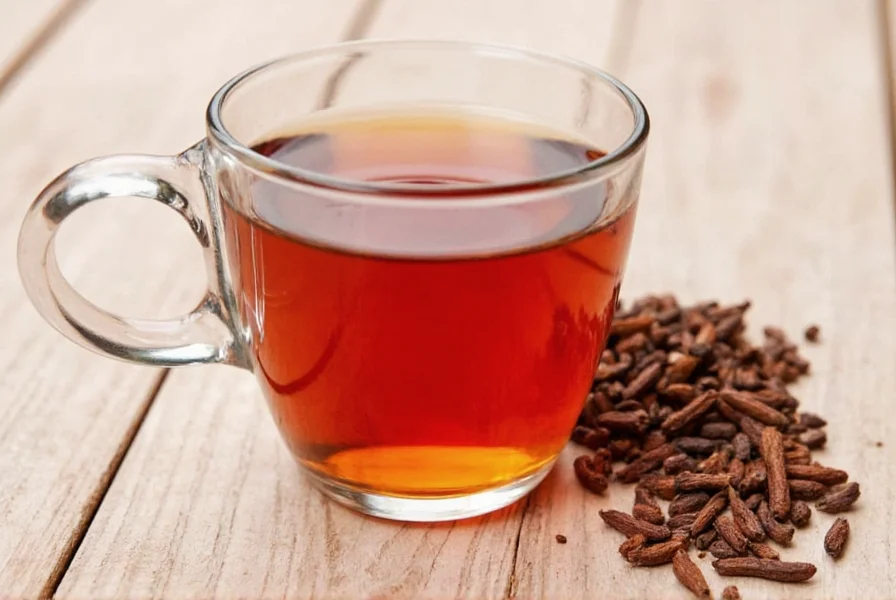Understanding Clove Tea and Its Health Properties
Clove tea, brewed from the dried flower buds of the Syzygium aromaticum tree, has been used in traditional medicine systems for centuries. Modern research is now validating many of these traditional applications while distinguishing evidence-based benefits from anecdotal claims. This aromatic herbal infusion contains eugenol as its primary active compound, which accounts for approximately 70-90% of clove's essential oil content and drives many of clove tea health benefits.

Scientifically Supported Health Benefits of Clove Tea
When examining clove tea medicinal uses, several benefits have stronger scientific backing than others. Let's explore what research actually supports versus traditional claims.
Powerful Antioxidant Protection
Clove tea ranks among the most antioxidant-rich herbal beverages. A 2021 study published in the Journal of Food Science and Technology found clove tea demonstrated higher antioxidant capacity than many common herbal teas, including chamomile and peppermint. The high concentration of phenolic compounds, particularly eugenol, helps neutralize free radicals that contribute to cellular damage and chronic disease development.
Anti-Inflammatory Effects
Chronic inflammation underlies many health conditions, and clove tea natural anti-inflammatory properties show promise. Research in the European Journal of Medical Research demonstrated that eugenol significantly reduces inflammatory markers like TNF-alpha and IL-6. While most studies have been conducted in vitro or on animals, these findings suggest potential benefits for inflammatory conditions when consumed as part of a balanced diet.
Oral Health Benefits
One of the most well-documented clove tea benefits is for oral health. The American Dental Association recognizes eugenol's antimicrobial properties against oral pathogens. A clinical trial published in the Journal of Indian Society of Pedodontics and Preventive Dentistry found that clove mouthwash reduced dental plaque and gingivitis significantly better than placebo. While drinking clove tea won't replace proper dental care, it may provide supplementary oral health support.
| Compound | Natural Concentration | Potential Health Effects | Evidence Level |
|---|---|---|---|
| Eugenol | 70-90% | Antimicrobial, anti-inflammatory, pain relief | Strong (human studies) |
| Vitamin C | Moderate | Immune support, antioxidant | Moderate |
| Vitamin K | High | Blood clotting, bone health | Preliminary |
| Manganese | High | Metabolism, bone formation | Preliminary |
| Oleanolic acid | Trace | Liver protection | Animal studies only |
Digestive Support
Traditional medicine systems have long used clove tea for digestive issues, and modern research provides some support. A study in the Journal of Pharmacy and Pharmacology found that eugenol stimulates digestive enzyme production and may help reduce nausea. Many users report relief from occasional indigestion after consuming clove tea, though individual responses vary.
Potential Benefits Needing More Research
While some clove tea health benefits are well-supported, others require more rigorous human studies before definitive claims can be made.
Blood Sugar Management
Preliminary research suggests clove compounds might help regulate blood sugar. A 2020 review in Nutrients noted that certain compounds in cloves showed potential for improving insulin sensitivity in animal studies. However, human clinical trials are limited, and current evidence doesn't support using clove tea as a diabetes treatment. Those managing blood sugar should consult healthcare providers before making dietary changes.
Immune System Support
The antioxidant and antimicrobial properties of clove tea may provide general immune support, but specific immune-boosting claims are overstated. While vitamin C and other compounds in cloves contribute to overall health, there's insufficient evidence that clove tea prevents or treats infections like colds or flu. Understanding clove tea benefits versus marketing claims is crucial for realistic expectations.
How to Prepare Clove Tea Properly
Maximizing the potential health benefits of clove tea requires proper preparation. Here's a simple method for optimal extraction of beneficial compounds:
- Use 3-4 whole cloves per 8 ounces of water (avoid pre-ground cloves which lose potency)
- Bring water to just below boiling (195-200°F/90-93°C)
- Add cloves and steep for 5-7 minutes (longer steeping increases potency but also bitterness)
- Strain and enjoy plain or with a squeeze of lemon
For those exploring how to make clove tea for specific health benefits, adding complementary ingredients can enhance certain properties. For example, adding cinnamon may support blood sugar management, while ginger boosts digestive benefits. However, these combinations should be used moderately as part of an overall healthy lifestyle.
Safety Considerations and Potential Side Effects
While generally safe when consumed in moderation, clove tea has important safety considerations. Understanding clove tea side effects ensures safe consumption:
- Dental sensitivity: Undiluted clove oil can damage oral tissues; tea preparation minimizes this risk
- Blood thinning: Eugenol has mild anticoagulant properties; consult a doctor if taking blood thinners
- Pregnancy concerns: High doses may stimulate uterine contractions; pregnant women should limit consumption
- Children: Not recommended for children under 2 years due to potential respiratory concerns
- Excessive consumption: More than 2-3 cups daily may cause nausea or liver concerns in sensitive individuals

Clove Tea in Context: Comparing Herbal Options
When evaluating natural remedies, understanding how clove tea compares to other options provides valuable perspective. Unlike ginger tea which primarily supports digestion, or chamomile tea known for relaxation, clove tea offers unique antimicrobial and antioxidant properties. However, it shouldn't replace medical treatment for specific conditions. For those researching clove tea benefits versus other herbal teas, consider your specific health goals and consult reliable sources for evidence-based information.
Conclusion: Realistic Expectations for Clove Tea Benefits
Clove tea offers several evidence-supported health benefits, particularly for antioxidant protection, inflammation reduction, and oral health. While traditional medicine has attributed numerous benefits to this aromatic beverage, scientific research validates some applications while showing others require more investigation. As with any herbal remedy, moderate consumption as part of a balanced diet and healthy lifestyle yields the best results. Always consult healthcare professionals before using clove tea for specific medical conditions, especially if taking medications or managing health issues.











 浙公网安备
33010002000092号
浙公网安备
33010002000092号 浙B2-20120091-4
浙B2-20120091-4